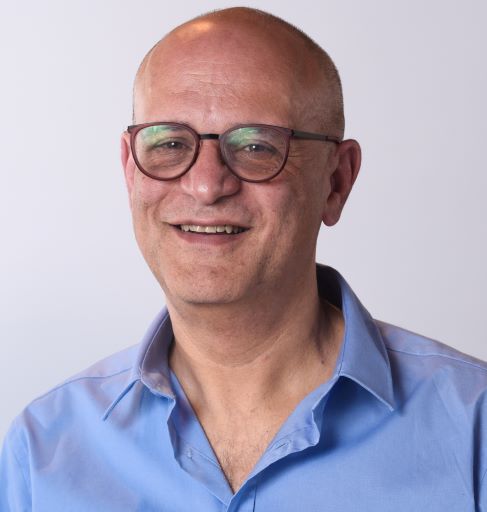Ways to Manage Worry Instead of it Managing You – Part One

The Emotional and Biological Factors that Cause us to Worry
Oy Vay!!! What if my presentation at work goes poorly? What if I miss my deadline at work? What if….? What will happen if….?
Are you familiar with these types of thoughts? I am sure you had similar thoughts when you have felt worried about something in your life.
As you are reading this blog, I am worried that you will not find my blog beneficial to you. Will it speak to your needs?
Stop! It’s time to lower my worry level.
Hi! I am Daniel Baum. I am a chronic worrier. As you can tell by my last statement, I have an advanced degree in worrying. So I struggle as you do to manage how much and when I worry. You can tell that worrying and the level of worrying that you or I feel is based on a series of interlocking questions that increase the intensity of worry and fear. Each preceding question could potentially raise or lower the level of intensity of how you and I experience worry, which is usually accompanied by anxiety and its kissing cousin, fear.
There is a lot of good information to help you understand how the process of worrying works. I have therefore divided this blog into three parts.
- Part one of my blog will explain to you the emotional and biological factors that cause us to worry (“toxic worry”).
- Part two will present to you some general recommendations to help you manage your worrying.
- Part three will give you some specific strategies to manage your worrying on day to day bases.
My goal, after you finish reading this blog, is that you will get a more comprehensive understanding of toxic worry and the tools to help you manage it better. Managing your worrying in a healthier way will allow you to free yourself, increase your energy level and give you a greater ability to love yourself and others. Worry only inhibits the expression of love.
Before we begin this journey of detoxifying you from your worrying, you need to know that the feeling we call worry is a natural, healthy and necessary feeling for us to survive and even to thrive.
It is when we worry too much, or ” toxic worry”, that this feeling becomes dangerous, unhealthy, impedes our growth and stops us from solving problems.
So let’s start to detoxify you from worrying!
My blog on worry comes from my years of being a chronic worrier as well as my 32 years of clinical experience as a psychotherapist. Much of the information that I am presenting in this blog is based on Dr. Hallowell’s book, Worry-Hope and Help for a Common Condition. In his book Dr. Hallowell explains how worrying can become “toxic” or what he calls the “toxic worry“.
In general, he believes that toxic worry is based on our realistic fears that have no factual basis in this particular moment in time.
Hallowell’s equation of worry is:
Increased vulnerability + decreased power = increased worry
Worry results from a heightened sense of vulnerability in the presence of a diminished sense of power. If you are worried about a meeting with your boss, this probably reflects a feeling of increased vulnerability or diminished feeling of power in the relationship.
Worry manifests itself with the phrase “what if….” This type of language can defeat a person. It can cause a person to freeze up and not make any personal or professional changes in his or her life. A pathway for underachievement and lack of professional fulfillment is caused by excessive worrying.
- The Basic Biology of Worry.
Dr. Hallowell explains that worry is a natural, genetically embedded emotion that helps us to identify when we are in danger. We need to feel worry in order to survive and to stay alert so we are ready to take action. Toxic worry on the other hand, does the exact opposite. It slows us down and freezes us into inaction.
- According to Dr. Hallowell, our brains are equipped to register fear and worry, and we are more sensitive to this than any other emotion. Worrying is an emotion that our brain evokes even more than pleasure.
- Our brains do not naturally sway toward positive thinking. Feeling happy and content and full of pleasure are not mental states that are naturally wired in our brains. This is because as far as nature is concerned, happiness is not essential for survival.
- He continues that feelings of sexual pleasure and hunger/feeding have elaborate dedicated specific biological circuits that are hard wired into our bodies. For the survival of the human species, nature attached a high priority to procreation and eating. Nature or genetics really doesn’t care about our dreams or desires.
- On the other hand, worry and anxiety rises up within us as naturally as hunger or thirst. Different hormones, nerve cell, neurotransmitters and large portions of the brain are on alert 24 hours a day. They are poised to feel fear and to take some kind of action according to the amount of fear we are feeling at the time.
- He attributes this to anthropological and biological changes. During caveman time we were faced with dangers that we are no longer faced with today.
- Let’s discuss how Hallowell looks at how our brain and body relate to our feeling of worry.
- How often we have heard people say following a traumatic experience, “That moment is burned into my memory like it happened yesterday?” There is a biological basis to this phrase.
- When the body senses fear, our hormones and other chemicals are pushed out in massive quantities to different parts of the body like the heart and muscles in order to be prepared to take action. This causes “brain burn”. Hallowell explains that the memory is burned into the brain and this memory in the future will increase the worry if the same situation comes around again. It is safe to say worry is not just caused by environment, or that a person is weak. There is a whole chemical reaction that contributes to worry. This biochemistry makes the feeling more intense so that even if the person wants to try to stop worrying, chemistry, nature and genetics may not be so cooperative.
As a Bioenergetic Psychoanalyst, I am in total agreement with Hallowell’s mind- body connection as it relates to worry.
In a future blog, I will talk to you about Bioenergetic Psychoanalytic psychotherapy. I will present to you a simple understanding of Bioenergetic Analysis and how it can treat the mind as well as the body.
After all this, you may ask, if it is biological than how can we possible change it? Yes you can change!
Hallowell states, “You cannot give yourself a new brain, but the brain you  have can be redirected in certain ways: retrained, reassured, bolstered and reset.”
have can be redirected in certain ways: retrained, reassured, bolstered and reset.”
We can learn to manage our worry more effectively. It is this belief that forms the basis of my personal and professional life.
My blog “Ways to Manage Worry Instead of it Managing You”, is divided into three parts. In part two, I will give you some general recommendations and thoughts about dealing with worry. I look forward to continue on our journey together to help you manage your worrying
Lastly, at the end of each of the three parts of my blog, Ways to Manage Worry Instead of it Managing You I will leave you with this acronym made up of the word, worry. This acronym will help you to remember what I have presented to you about the subject of worry.
Most importantly, I hope it will give you a concrete tool to manage your worrying as you move through your day.
Wait
One minute
Relax
Refocus
Yourself
Remember: don’t worry too much so that you can feel happy.

Reference and extra help:
- Edward M. Hallowell, M.D., “Worry, Hope and Help for a Common Condition,” Random House Publishing Group, Copyright 1997
- Dr. Hallowell also recommends that self -help groups can be a great addition together with professional mental health professionals to help people manage their worrying. I recommend that you attend a self- help group called Emotions Anonymous. Their web site is: http://emotionsanonymous.org/. Just go to the web site you will find a wealth of information. On the web site press on the tab, “Find a Meeting,” and you will find meetings all over the world including in Israel.
*Please feel free to contact me directly; your feedback about my blog is greatly appreciated. Cell Phone: 011-972-54-5819591; E-mail: [email protected]; Web-Site: www.growingchange.co.il
Daniel Baum, M.S.W. I am trained psychotherapist with over 32 years of experience. At my clinic, “Growing Change,” I specialize in treating men and women who suffer from different types of addictions as well as emotional and psychological problems.



